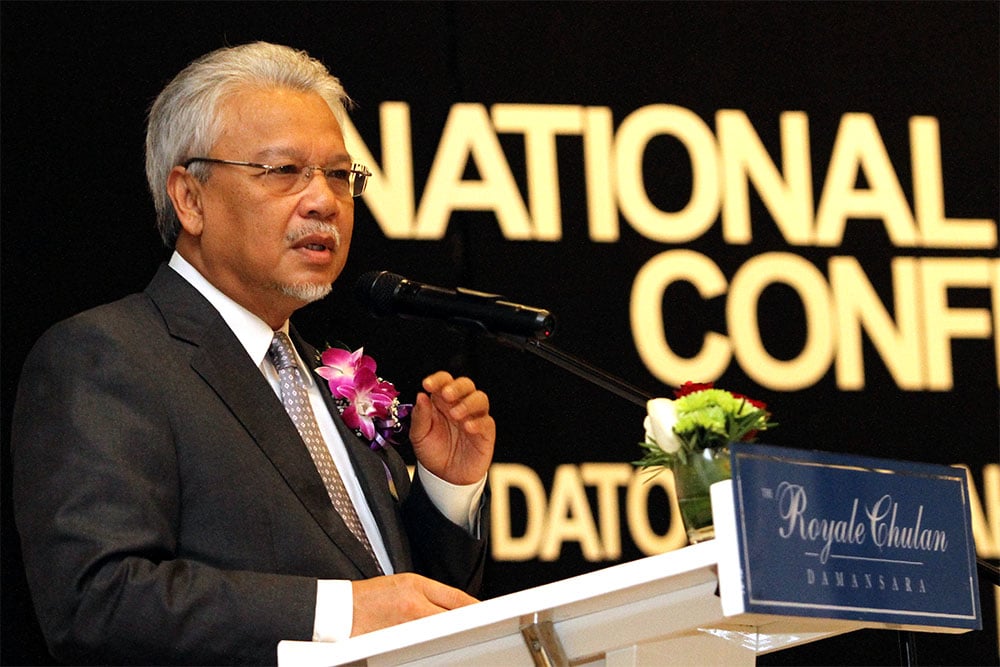Trending: 1MDB Scandal Update and FinCEN Guide to SARs
1MDB
Last week, Global RADAR reported on the global trend of international figures utilizing the pooled client accounts of law firms within the United States to safely bring money into the U.S. system while bypassing impenetrable anti-money laundering defenses. One of the major talking points of this article involved a Malaysia-centered money-laundering scheme involving pooled accounts of multiple firms in the United States. The accounts in this scandal held several million dollars worth of funds, which were used to make several high-profile purchases in the United States. The funds were allegedly siphoned by Malaysian businessmen from the Malaysian Development Fund (1MDB), with over $3.5 billion in total reportedly being misappropriated. The individuals involved in the siphoning efforts are currently engaged in civil trials for forfeiture of the assets purchased with these funds, and several have had their assets frozen altogether in Singapore. However, the majority, including the scheme’s suspected kingpin Jho Low, have not been formally charged with any offense thus far. Additionally, the U.S. law firms holding the funds have also faced no repercussions for their roles in the scandal, as they were in compliance with legal standards.
Although the U.S. system has failed to hold the individuals involved in this case accountable for their actions due to the current regulatory framework governing the institutions and individuals involved, a charge has been made against a high-ranking official of a recently shut down Malaysian bank . An article written by the International Business Times titled “Falcon Bank manager charged in Singapore over 1MDB money laundering” cited in BSA News Now on January 6th, 2017 writes that the branch manager of Singapore-based Falcon Private Bank has been arrested on charges of failure to report suspicious transactions and providing false information to Malaysian authorities in relation to the 1MDB state wealth fund. The individual, Swiss national Jens Fred Sturzenegger, is accused of “helping to hide the suspicious transaction involving US$1.265 billion into two Falcon bank accounts in March 2013” (Falcon Bank, 2017). The International Business Times also provided a statement from the Monetary Authority of Singapore (MAS) on the money laundering investigation that was taking place at Falcon Private Bank. The central bank of Singapore stated that it was “withdrawing the merchant bank status of Falcon Private Bank for serious failures in anti-money laundering (AML) controls and improper conduct by senior management at the Head Office in Switzerland as well as the Singapore Branch” (Singapore Central, 2016).
The action brought against Falcon Bank was reportedly based off of failures in the bank’s head office to act on several conflicts of interest relating to customer accounts, as well as the improper conduct of Sturzenegger while acting as branch manager. Additionally, the MAS found what they considered to be a “persistent and severe lack of understanding of MAS’ AML requirements and expectations” (Falcon Bank, 2017). The charges are one of several moves made by the Monetary Authority in regards to the 1MDB fund fallout. In November, Singapore authorities sentenced a former Singaporean executive from the Swiss Bank “BSI” to 2.5 years in jail following his role in brokering illegal transactions involving 1MDB funds. In addition, MAS also issued a fine of $5.2 million (Singapore dollars) to Standard Chartered Bank of Singapore earlier this month for anti-money laundering regulation breaches, as well as a fine of $2.4 million (Singapore dollars) to Coutts & Co. Private Bank (Falcon Bank, 2017). With money laundering investigations related to the Malaysian State Fund currently occurring in over six countries, it is safe to say that more fines and penalties will be handed down in 2017.
FinCEN’s Guide to SAR
Compliance Week, a leading source for risk and compliance news, reported on the latest guidance handed down by the Financial Crimes Enforcement Network (FinCEN) this past week in regards to the sharing of Suspicious Activity Reports (SAR’s) with U.S. Parents and Affiliates of Casinos. The guidance report confirms that under the Bank Secrecy Act, “a casino that has filed a Suspicious Activity Report may share it, or any information that would reveal the existence of the SAR, with each office located within the United States of either the casino itself or a parent or affiliate” (Mont, 2017). Through the creation of this network of SAR sharing, the advisory believes that this practice will aid casinos in their risk management and compliance efforts, and will more easily facilitate a casino’s ability to identify suspicious transactions and other activity. Perhaps the most impactful effect of SAR sharing will be the positive influence the SAR review process will have on the AML efforts of the parent and affiliates, allowing these entities to gain a more clear understanding of the casino activities that have been identified as “suspicious.”
The BSA regulations also state that casinos can disclose the transactions and documents that a SAR is based off of, but the sharing of SAR’s does come with certain restrictions. Casinos are not allowed to share SAR’s or other exclusive information with parents, affiliates, or other entities located outside of the United States, nor can they share information with individuals unrelated to gaming. They also cannot share SAR’s with financial institutions lacking an “independent SAR-filing obligation, such as a check casher or a money services business” that is not an affiliate of the casino (Mont, 2017).
Citations
J, Jacob. “Falcon Bank Manager Charged in Singapore over 1MDB Money
Laundering.” International Business Times, Singapore Edition. 05 Jan. 2017. Web.
J, Jacob. “Singapore Central Bank Orders Closure of Falcon Bank; UBS, DBS Fined.”
International Business Times, Singapore Edition. 11 Oct. 2016. Web.
Mont, Joe. “FinCEN Gives Guidance on Sharing SARs.” Compliance Week. 5 Jan.
2017. Web.

